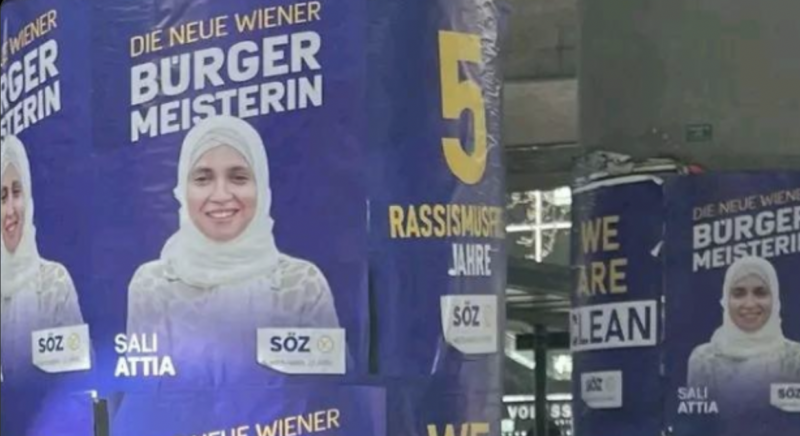A rising political party in Austria has sparked debate ahead of Vienna’s state elections by selecting a young Muslim woman with a history of anti-Israel affiliations as its top candidate. Sali Attia, who wears a hijab and has previously run under the Gaza List banner, is now leading the Social Austria of the Future (SÖZ) party into the electoral race.
Attia’s previous involvement with the Gaza List—a small but controversial political group that openly brands itself as anti-Zionist—has drawn scrutiny. While the Gaza List isn’t officially on the ballot, it has thrown its support behind SÖZ in hopes of gaining a voice in the Viennese city council.
SÖZ, which positions itself as a pro-Muslim, minority-focused party, received 1.2% of the vote in Vienna’s 2020 elections. Notably, it drew support from 20% of Turkish-background voters in the city. The Gaza List, by contrast, garnered just 0.4% in Austria’s last national elections.
SÖZ’s platform pushes for increased recognition of Muslim cultural practices, such as making the final day of Ramadan a national holiday and establishing an annual Islamic celebration in one of Vienna’s central public squares. The party also campaigns strongly against what it describes as systemic Islamophobia and Austria’s allegedly hostile stance toward Islam.
The Gaza List echoes these sentiments and openly criticizes Israel while remaining silent on militant actions by groups such as Hamas—stances that have led some Austrian observers to label the movement as radical.
Looking to the future, demographic shifts could tilt the political balance. A study by the Vienna Institute of Demography estimates that by 2046, nearly one-third of Vienna’s population may identify as Muslim. That projection has led some analysts to predict a potential rise in influence for parties like SÖZ and others with strong roots in immigrant communities.
As election season kicks into gear, the choice of Attia as the public face of SÖZ highlights growing cultural and political divides in Austria’s capital—where tradition, identity, and integration continue to collide on the campaign trail.




